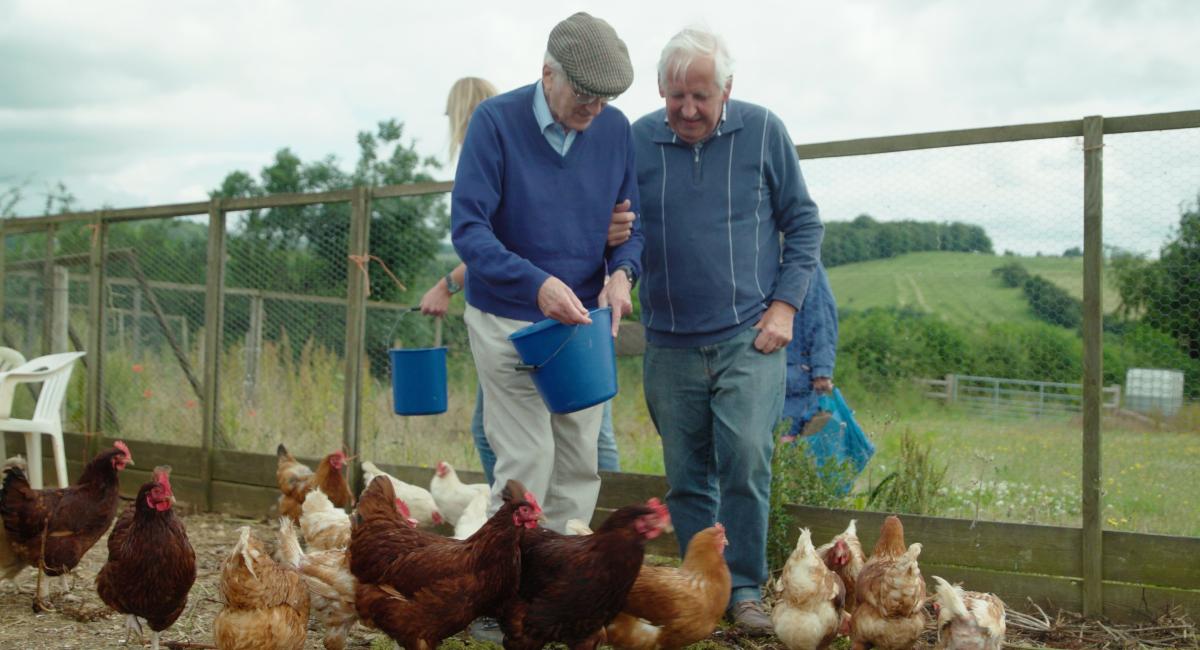
Care farming means the therapeutic use of farming practices. It's sometimes called social farming.
Care farming sits amongst other nature-based therapies that are collectively called 'green care'. Green care means structured nature programmes for people with a defined need to benefit health, social care or education outcomes.
Social Farms & Gardens is a founding member of the Green Care Coalition. The coalition represents green care providers in the UK and promotes green care as effective option for health and social care.
What care farms do
- Deliver health care, social care or specialist educational services for vulnerable groups of people
- Provide a programme of farming-related activities for individuals with a defined need
- Provide supervised, structured, bespoke care services on a regular basis for service users
- Are commissioned to provide services by a range of referral agencies
- Deliver services for adults, young people and children
What care farms look like
Care farms regularly work with people with a defined need. They organise activities outdoors which might include animal assisted therapy, growing crops, horticulture or land management.
Care farms don't always have animals. Many care farms take place in variety of settings, including urban based community allotments and gardens. It is the combination of the intervention and the working farm environment that is important and defines a care farm.
Who care farming is for
People attend care farms for different reasons. It can be for health and social care, mental health and wellbeing, rehabilitation or a specialist education programme.
There are around 400 care farms of all shapes and sizes right across the UK providing care places. Care farms can look very different from each other and are as diverse as the people that they support.
Care farms often provide services for:
- People with mental ill-health
- Young people excluded from school or on Alternative Provision
- Adults, young people or children with learning disabilities or with ASD
- People living with dementia
- Ex-service personnel with PTSD
- People with a drug or alcohol addiction history
All sorts of organisations refer people to care farms – from social services, community mental health teams, schools, Pupil Referral Units (PRUs) and Alternative Provision Institutions (APIs) to GPs, probation services and families.
Why care farming works
One thing all care farms have is common is providing a supervised, structured programme of farm-related activity for people with a defined need. Care is bespoke, person-centred and focused on the individual.
What is unique, is that care farming activity has a real purpose behind it. People are able to make a meaningful contribution to the running of a farm. This might be through animal care, growing crops and vegetables, horticulture or land management. People who commission care services are increasingly recognising the benefits of care farming.
Wider benefits of care farming
Care farming is a good thing for our society in lots of different ways.
Benefits for service users
- Improvements to mental and physical health
- Increased self-confidence and self-worth
- Reduced social isolation
Benefits for health and social care providers
- An innovative and effective care option
- Takes the strain from statutory services and the NHS
Benefits for farmers
Farmers have an alternative way to use their farm to provide health. social and education services in addition to or instead of commercial production
Watch our short video about care farming and what it means to different people:
Watch further video resources about care farming produced by the Growing Care Farming project and featuring green care expert Dr Rachel Bragg:
Care farming principles
Find out more about the principles of care farming produced by the Growing Care Farming project:
 English
English Cymraeg
Cymraeg